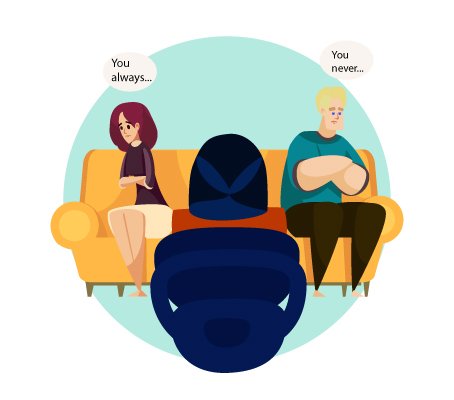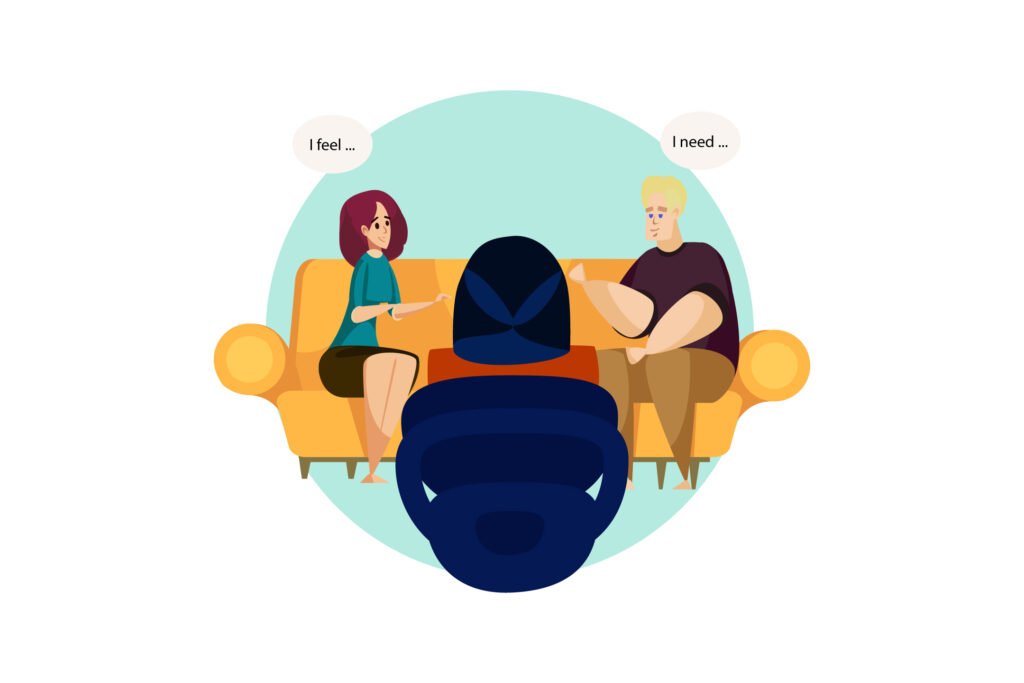Interpersonal conflict is a natural part of life, given our individual differences and perspectives. How we handle conflicts can greatly influence the outcome and the overall dynamics of a conversation. The initial moments of a conflict conversation, often referred to as the “start-up,” indeed play a crucial role in setting the tone and direction for the rest of the discussion.
According to statistics, 96% of the time, the outcome of a conversation can be predicted based on the first three minutes, highlighting the significance of those initial moments. It underscores the importance of approaching conflict conversations with care, empathy, and effective communication skills

What does not work
A harsh start-up to a conflict, which involves criticism, blame, and negative language, is often counterproductive and can significantly impede the resolution process. It creates a hostile atmosphere that hampers the supportive functions of relationships, erodes trust, and undermines commitment. Furthermore, a harsh start-up can lead others to question the motives, capabilities, and sincerity of the individuals involved, which can further complicate the conflict resolution process.
Developing conflict resolution skills is crucial to minimizing the detrimental outcomes associated with harsh start-ups. By acquiring and practicing these skills, individuals can approach conflicts in a more constructive and productive manner. Some key conflict resolution skills include:
- Effective communication: Enhancing communication skills helps individuals express themselves clearly, actively listen to others, and engage in respectful dialogue. This enables them to articulate their concerns without resorting to blame or criticism.
- Empathy and perspective-taking: Developing empathy allows individuals to understand and appreciate different viewpoints. Perspective-taking helps them see the situation from the other person’s perspective, fostering understanding and promoting collaborative problem-solving.
- Emotional intelligence: Building emotional intelligence helps individuals manage their emotions during conflicts and respond in a more measured and constructive way. It involves self-awareness, self-regulation, empathy, and effective handling of emotions in challenging situations.
- Problem-solving and negotiation: Learning problem-solving techniques and negotiation skills equips individuals with the tools to identify common interests, explore creative solutions, and reach mutually acceptable agreements. This approach focuses on addressing the underlying issues rather than assigning blame.
- Conflict management strategies: Familiarizing oneself with different conflict management strategies, such as compromising, collaborating, or seeking mediation, allows individuals to choose the most appropriate approach for a given situation.

Here are a few suggestions for initiating a conflict conversation in a constructive manner:
- Choose an appropriate time and place: Find a suitable environment where both parties can express themselves comfortably without interruptions or distractions.
- Begin with a positive and empathetic statement: Start the conversation by expressing your intention to find a resolution and emphasizing your respect for the other person’s perspective. For example, you could say, “I value our relationship, and I believe we can work through this conflict together.”
- Use “I” statements: Frame your concerns or opinions using “I” statements to avoid sounding accusatory or confrontational. This helps to express your own feelings and experiences without placing blame. For instance, say, “I feel upset when this happens,” rather than “You always do this.”
- Practice active listening: Give the other person an opportunity to express their views without interruption. Demonstrate active listening by maintaining eye contact, nodding to show understanding, and paraphrasing their thoughts to ensure accurate comprehension.
- Focus on the issue, not the person: Keep the conversation centered on the specific problem or disagreement rather than attacking the other person’s character. This can prevent the conversation from devolving into personal attacks and keep the focus on finding a solution.
- Seek common ground: Look for areas of agreement or shared goals. Identifying common interests can help create a foundation for finding mutually beneficial solutions.
- Remain open-minded: Approach the conversation with a willingness to consider alternative perspectives and be open to finding compromises or creative solutions.
Remember, conflict conversations should aim for understanding, resolution, and growth, rather than winning or proving someone wrong. By managing the start-up of a conflict conversation effectively, you increase the chances of fostering a constructive dialogue and reaching a positive outcome.
By developing these conflict resolution skills, individuals can foster healthier relationships, maintain trust and commitment, and effectively address conflicts in a way that leads to mutually beneficial outcomes. It takes practice and effort, but the rewards are well worth it in terms of personal growth and improved relationships.




